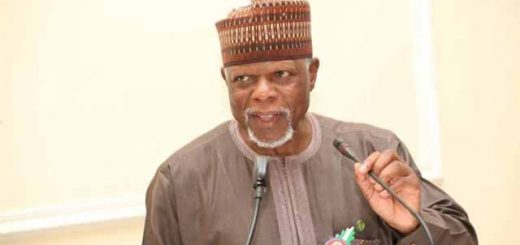Trade Facilitation, Disruption and Compliance with Cargo Regulations at Nigerian Sea Ports
“Henceforth, every Area Controller must respond accordingly to Strike Force Intervention Alerts. The Strike Force team has been authorized henceforth to intervene right in the port and possibly make seizures where necessary without hindrance. Non-compliance to this circular would attract severe sanctions,” (Nigerian Customs Service).
Trade facilitation and ease of doing business have been some of the most valid arguments for speedy cargo examination at the port. On the other hand, false declaration of cargo, wrong classification or wrong shipping information by shippers have been put forward as some relevant justification for the physical or multiple cargo examination.
The effect of this manual procedure has been largely responsible for the operational inefficiency and costly delays that characterize the Nigerian Freight Forwarding in Nigeria. It was in reaction to this trend that the Nigerian Customs Service recently announced its intention to establish an e-Cargo tracking and scanning system.
The question then is, if an integrated e-cargo tracking and scanning system will bring about trade facilitation and make doing business at the ports easier, why then is physical and multiple cargo examinations still prevalent?
Just last week, April 25th, the Nigerian Customs issued a circular, authorizing the Comptroller General’s “Strike Force” to conduct 100% re-examination of suspicious shipments right inside the ports and even confiscate where necessary.
To this end, all Area Controllers have been directed to respond accordingly to the “Strike Force” intervention alerts on suspicious cargoes or be held responsible for non-compliance – which of course will attract severe sanctions. The explanation for this decision is a direct response to the inability of those responsible for cargo examination at the ports to do so diligently.
Consequently, many industry stalwarts see the Customs decision as a major setback – especially because it slow-down cargo delivery turn-around time and further worsen the existing logistics gridlock. Strike Force modus operandi, where alerts are placed at shippers’ manifest level is questionable.
It’s almost inconceivable that a professional argument can be made to place alert by the mere sighting of the description of cargo at the manifest. Such alert disrupts the clearance chain because it requires the invitation of the Strike Force team to the scene of cargo inspection and grants prior approval before the shipment is released at the terminal.
If an argument can be made for the establishment of the Strike Force, it will be to have them as a unit in the ever-expanding chain of Customs inspections units, so that they will be part of every Customs inspection during traditional joint-inspection of the cargo.
Another argument against this decision is that the failure of the Nigerian Customs to deploy technological means (which are unarguably much faster) for cargo examination, as deliberate and self-serving. In the face of the arguments for and against the incidence of multiple cargo examination, the activities of the “Strike Force” will help to curb the following:
• False declaration
• Wrong cargo classification
• Importation of prohibited items etc.
While the foregoing justifies the need for physical and multiple cargo examination, the deployment of a fully functional e-cargo tracking/scanning at the ports will attract the following benefits:
• simplified Customs Clearance procedures in such a way that it’s easier to track consignments and handle much higher volumes.
• It will reduce the high incidence of dumping and false declaration of cargo values or the attempts to deliberately provide wrong information or circumvent the system.
• Customs declarations and compliance processes will also become more transparent than ever before.
• It will decongest the port areas due to minimal or no need to conduct a physical examination of cargo.
• It will reduce transit time, enhance cargo safety and help traders better predict the arrival and delivery of goods.
• It will bring about much greater logistics efficiency
• It will increase government revenue because the appropriate duties, levies and taxes will be paid for every cargo that enters or leaves the shores of Nigeria.
The authorization of multiple cargo re-examination surely has its limitations but the current decision by the Nigerian Customs is more of an attempt to enforce compliance and curtail the activities of shippers/importers and conniving regulatory agencies who are bent on circumventing the system and undermining their commitment to regulatory/legal requirements.
While this statement serves as a valid justification for physical or multiple examinations, the technological options appear to be the most desirable one now. That is the global standard. The cost of establishing and implementing the technological option may be high but the benefits far outweigh the cost of multiple or physical examinations prompted by its absence.



